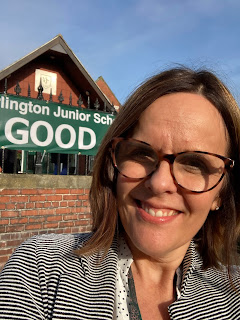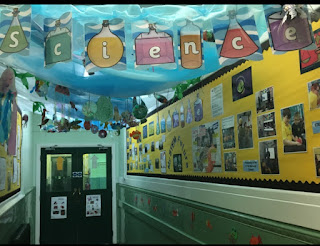My Masters Journey and Top Tips
My Masters Journey and Top Tips
My journey
It is widely acknowledged that participating in a Masters is admirable and a considerable task; this was an important undertaking for me and a long held ambition. However, working on a full-time basis in school leaves professionals with very little spare time. As a teacher of Six years at the time of starting and also working in Year Six, plus heading towards a big birthday, it seemed like the time was right for me to seize the opportunity and complete this ambition. I feared that if I did not do so, my optimum chance may pass me by. An opportunity arose when I realised the local college was running a ‘Masters in Education’ course in the evenings.
As Science/STEM Subject Lead, I had recently attained the PSQM accreditation with my school which meant I had been busy and had re-familiarised myself with working in an academic way. I felt that whilst learning at the East Riding College, new knowledge gained would inform my work. In addition, if I could tailor my choices within the learning modules of the course, I could use my experiences and professional knowledge gained at work, to inform my academic work.
I attended night class one evening each week. My mind-set was that although difficult to maintain over the cold and dark winter months, retrospectively, the rewards of turning out and sticking at it would far out-way the sacrifice of time given to the project. I would have to undertake most of the academic work out of term time due to the demands of my Year Six work which meant holiday time would be spent reading and writing for the two year duration.
Support
Support at home is vital. My youngest daughter Isabel is now 17 years old and undertaking her own studies (and my other two daughters now live in their own homes) and I was already in a position where Izzy was not reliant on me coming straight home from work so I could dedicate the time needed to make it a success. Also, my partner has been so supportive; he too has been studying (as he is now in his last year of a History and Politics Degree) so fully understood when I was arriving home late or had my head in a book! My parents have always been hugely supportive and encouraged maximum effort- which has instilled determination and resilience in me- so it seemed like an exciting venture and a chance to evolve and develop myself further. After all, we are all on a constant learning journey as we go through life. I began my teacher training back in 2008 when I undertook a Foundation Degree in Learning Support whilst working as a Teaching Assistant. This was followed by QTS and a BA Degree top-up which enabled me to become a qualified teacher in 2013.
Modules
1-Perspectives on Learning
-This was a brilliant way to ease participants into this level of academic study.
2-Improving Student Performance
3-Perspectives on Inclusion
-This was a subject very close to my heart as my older brother has multiple barriers to learning and suffered greatly due to segregation within the Education System in the 1970/80s.
4-Research Methodology
-This was very important in relation to the subsequent dissertation I completed. I absolutely loved undertaking my literary review. The documents chosen were reports from the Wellcome Trust which I was sign posted to by Jane Turner (PSQM)- thank you Jane for your encouragement. They were very relevant to my eventual research project.
5-Curriculum Perspectives
6-Leadership for Learning
-Again, really important in supporting my further development as a professional and human being.
7-Dissertation
My Dissertation
My dissertation was based on a research project that I carried out with my Year Six class at school in the Autumn term last year regarding Year Six pupils and their engagement in STEM subjects- and how careers information in this regard could affect attainment, engagement and enthusiasm. The children really developed an interest in STEM related careers and their improved engagement was visible, as well as measured through pupil voice activities and online questionnaires. This had such a brilliant impact on the school and my pupils. Our school went on to be accredited with the National Primary Careers Mark in Careers Education which is now being rolled out across the whole school in this academic year as a result. The assessor who visited my class virtually and interviewed the pupils was so impressed with their passionate involvement, their positive growth mindset and interest. I was so proud of them and grateful to my colleague, Carla Porter, who worked alongside me with my class throughout the whole academic year last year (lockdown included, which was a very difficult time).
Benefits
Having completed the course, I certainly feel more armed within my role to progress going forward. Undertaking a Masters really enhances core confidence and develops self-assurance. Being more qualified within your field is a signpost regarding your aptitude and definitely benefits in a professional way. Working with and around a small group of professionals with the same interests in learning, when undertaking the course, is a very fulfilling experience and really helps to broaden and develop understanding of previous ideas and concepts. Also, having tutors who are experts in the field is highly beneficial.
Top tips
Pace yourself
Be as organised as possible
Don’t be afraid to ask for help
Read around the topics
Reference as you go
Try and cross reference work at school with course activities wherever possible to save on reading and time
Be prepared for it to take over for a while- it will be worth it.
Communicate with peers/colleagues- this can really enhance/support your learning.
Don’t panic- think of it like a hurdles race and prioritise.
Have a positive growth mindset.
You can do it!
I would strongly advise you to look up…
Karol Dweck- Positive Growth Mind-set Theory
Sugata Mitra- The School in the Cloud
John Dewey- visionary Education theorist on mobile learning- 1936
YESTEM (Louise Archer)- Equity Compass
Neoliberalism- this had a profound effect on my outlook and confirmed many thoughts I have had for years.
Sir Ken Robinson’s TED Talks
Evolution
It is true to say that undertaking a Masters is a huge journey on which individuals really evolve. It is staggering how much you can change your mindset and thrive on learning new things and meeting new people. I thoroughly enjoyed evolving my opinions as I learned more and was so proud when the course director, Kelly Ackroyd, asked me to speak to the first year students about my ongoing journey.
On reflection
I am so proud to have completed my Masters in Education, having attained a distinction for my dissertation and a high merit overall. I cannot believe two years are over and it is now completed. That is the funny thing about taking on a course such as this; before you know it, you have finished. I would urge anyone thinking of undertaking a Masters to do so- it has been one of the most valuable things I have done in my life. I loved it.
It is sad that Graduation has not been able to take place as yet but I am really happy with my achievement and hugely looking forward to celebrating in my Cap and Gown.
Acknowledgements
Kelly Ackroyd- Course director.
I cannot speak highly enough of Kelly: she is such a wonderful person and an amazing professional who offered fantastic support and encouragement at all times.
The East Riding College and all of the tutors were excellent, offering a friendly and approachable route to attaining a Masters in an accessible way. Clive Hyland requires an extra mention- he is also an excellent tutor who was always available, punctual and offered valuable advice and insights.
My Head teacher and school were also very supportive for which I am very
grateful.
Kate
References
Archer, L. (2020) Fun Moments or Consequential Experiences Retrieved from https://www.raeng.org.uk/education/webinar-series/previous-webinars/fun-moments-or-consequential-experiences
Association of Science Education (2012) ASE Guide to Research in Science Education. Hatfield. ASE
Dewey, J. (1938) Experience and Education. New York: McMillan.
Dweck, C.S. (2016) Mind-set. The New Psychology of Success. New York: Ballantine Books.
Mitra, S. Retrieved from https://www.ted.com/talks/sugata_mitra_build_a_school_in_the_cloud?language=en
OECD (2020) Dream Jobs Retrieved from https://www.oecd.org/education/dream-jobs-teenagers-career-aspirations-and-the-future-of-work.htm
Robinson, K. (2006) Do Schools Kill Creativity? Retrieved from https://www.ted.com/talks/sir_ken_robinson_do_schools_kill_creativity
Schon, D.A. (1983) The Reflective Practitioner: How Professionals Think in Action. Oxford: Routledge.
Sutton Trust (2019) Elitist Britain Retrieved from https://www.suttontrust.com/our-research/elitist-britain-2019/





Comments
Post a Comment